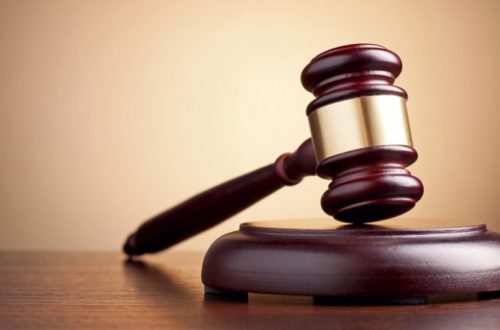The movie “The Social Network” used the depositions of Eduardo Saverin and the Winklevoss twins, who sued Mark Zuckerberg over the creation of Facebook, to tell its story. Depositions in real life are also used to hear one party’s side of the story so the attorneys know what to expect at trial. Most people have never had their deposition taken and, like many parts of the legal process, it can be daunting to the uninitiated. Knowing what to expect can alleviate much of that worry.
What is a Deposition and Do I Need an Attorney?
At their core, depositions are merely a question and answer session between a person that has information about a case (the deponent) and an attorney. They are recorded by a court reporter and are conducted while the person is under oath, just as if they were at a trial in a courtroom.
Often, deponents are parties to the case at hand, in which case their attorney would automatically attend. Sometimes, however, third-parties are subpoenaed and, while not required, it may be wise to consult an attorney.
By way of example, a client called our office because she was going to be deposed. Her situation involved a lawsuit between co-owners of her place of work. One co-owner left the company and started a competing company, taking many clients with him. The other sued him. Our client was subpoenaed because the plaintiff co-owner believed she assisted the defendant co-owner set up the new company. While she was not a party to the litigation, the situation made her uneasy, so she hired our firm to review the documents they subpoenaed, prepare her for the deposition, and attend it with her.
Key Tips for Before the Deposition:
1. Review the Notice of Deposition and/or subpoena carefully. Make sure your name appears on the document. Pay special attention to the subpoena and check whether it identifies any documents you are to bring with you to the subpoena. Sometimes these documents must be produced, or given over, to the attorney prior to the deposition and sometimes they are produced contemporaneously with the deposition. In either case, carefully read the descriptions of the documents identified. If the subpoena lists “all written communications between [Person A] and [Person B],” it does not mean simply all formal correspondence. It means anything in writing: e-mails, text messages, Facebook posts, direct messages on Twitter, etc. An attorney can help you sort out these documents.
2. Preparation is key. The most important thing to do prior to a deposition is properly prepare. If any documents or evidence are subpoenaed, carefully review them with an attorney, if possible. Read over anything you are requested to provide and then re-read it a few times. There is a good chance you will be asked about those documents in the deposition and it is always better to be over-prepared than caught off guard.
3. Take note of the time and place of the deposition. Depositions are often held at the office of the attorney who is conducting it. However, sometimes they are at the opposing counsel’s office or a third-party’s office. If there is a dispute regarding the location of a deposition, the court can step in and identify a neutral site, such as a conference room at the courthouse. Wherever the location, make sure you map out your route, identify any parking issues, and give yourself plenty of time to account for traffic or construction.
Key Tips for During the Deposition:
4. Speak clearly and slowly. A court reporter will be in attendance to record and transcribe the deposition. The whole process will go quicker if the court reporter does not have to stop the conversation and ask you to speak up or slow down. Non-verbal cues, like head nodding, are not able to be recorded, so make sure to answer “yes” or “no” out loud.
5. Don’t guess at the answer. Depositions are taken under oath, which means lying during a deposition constitutes perjury. If you are unsure of the answer to a question, simply say so. Saying “I don’t know” is much better than guessing and you should never say what you think the attorney wants to hear unless it is an honest answer to the question asked.
6. Don’t be afraid to ask! If you don’t understand a question, ask the attorney to clarify or rephrase it. Make sure you understand a question completely before answering so you do not provide a false answer unwittingly. It is also completely permissible to request a break. Many times, depositions are all-day events and it is only natural to need a break to stay mentally grounded. As long as you are not being unreasonable with the frequency and duration of your requests, it is very likely no one will mind and they might even appreciate it.
7. Try to be calm and even-keeled. Getting angry and emotional or arguing with the attorney asking the questions is not productive and will not help the deposition conclude any faster. However, some emotions may come to the surface and that is fine. In one on-going case between two siblings in a dispute regarding their father’s estate, we deposed one of them several months ago. It was very emotional for both of them, to say the least, and the deponent requested several breaks to collect herself. This is certainly to be expected in estate litigation, but even situations with less sensitive subject matter can get emotional. Just do your best and ask for a break if you need one.
8. Avoid oversharing and only answer the question at hand. If the attorney questioning you wants further details, he or she will ask. One tactic that some savvy attorneys can use is silence. After a question has been answered, the attorney may pause for a while without asking a follow-up question. This strategy often works because most people do not want to sit in awkward silence, so they begin talking again. This could result in oversharing. If an attorney tries this tactic, stand your ground. You should not feel obligated to fill the silence.
There are not many people that look forward to depositions, but knowing what to expect and being well prepared can take much of the anxiety out of the equation. If you are concerned about an upcoming deposition and would like an attorney to help you prepare and appear with you, please visit us at www.lindleylawoffice.com or give our office a call at 704-457-1010.




